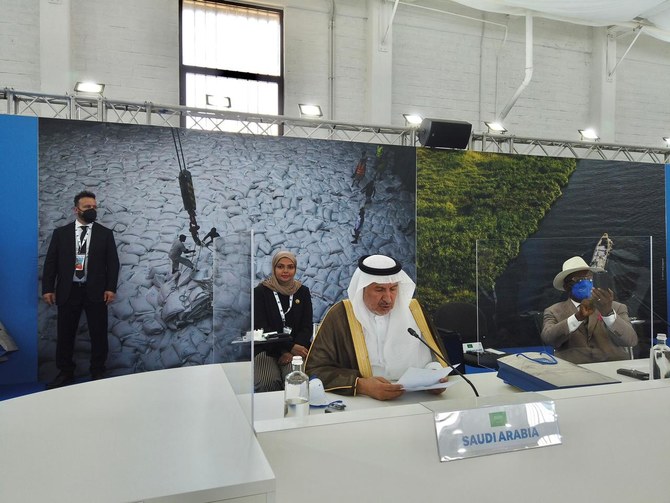BRINDISI, ITALY: Saudi Arabia is “uniquely equipped” to be a regional hub for producing COVID-19 vaccines, the King Salman Humanitarian and Relief Center (KSrelief) supervisor general said on Wednesday.
Dr. Abdullah Al-Rabeeah was speaking at a G20 Ministerial Event on COVID-19 logistics and preparedness, co-hosted by the Italian Ministry of Foreign Affairs and the World Food Programme (WFP), at the UN Headquarters in Brindisi in Italy.
Al Rabeeah stated that the Kingdom was ready to be a regional center for the production of COVID-19 vaccines and other medicines and supplies, as well as for logistics activities.
He noted that many countries in the Middle East, Asia and Africa are still suffering from high rates of COVID-19 spread, and that glaring inequities in vaccine supply meant that sufficient vaccine supplies have reached very few countries worldwide.
“In order to ensure that global COVID-19 response is streamlined to protect as many lives as possible, we must work together,” he said, stressing the need for closer coordination among members of the international community in all aspects of health care, humanitarian and development programs and logistics.
“As we are all aware, the onset of the COVID-19 pandemic in 2020 created unforeseen challenges around the world,” he said.
“The toll this global health emergency has taken on economies, health systems, education, governance and social structures has been devastating, particularly for the most vulnerable groups, such as children, women, the elderly, and those suffering from hunger, conflicts and natural disasters,” he added.
Al-Rabeeah also said “the sad reality is that most (countries) are still suffering from high rates of spread, hospitalizations and deaths” and that “increasing the access of all countries to vaccines is key to achieving global control over COVID-19… learning from the lessons (of COVID-19) is essential (when planning to address) future outbreaks.”
He said Saudi Arabia’s commitment to the global fight against COVID-19 had been evident since the pandemic began.
“Saudi Arabia strongly encourages regionalization of pertinent industries – particularly in the Middle East, Africa and Asia,” he said.
“Regional production of COVID-19 vaccines and other medicines and supplies would not only provide more vaccine availability, but would also create job opportunities and boost the ability of regional health care systems to control their own vaccine distribution and delivery.
“This approach would apply not only to vaccines and treatment medications, but also to all other necessary equipment and supplies, such as PPE for hospital staff and the general public, ventilators and medical gases.”
Al-Rabeeah also said Saudi Arabia had invested a total of $713 million to support the global fight against COVID-19, including donations to Gavi, the COVAX Facility and CEPI.
“KSrelief has also delivered bilateral assistance to a number of countries, including Yemen, Syria and Sudan, and aid to others via third-country delivery points,” he said.
Al Rabeeah also highlighted the Kingdom’s ongoing support for refugee communities worldwide, including extensive pandemic assistance to Rohingya refugees in Bangladesh, Syrian refugees in Lebanon and Jordan, and a number of other refugee groups with concentrations in Africa, the Middle East and Asia.
Over the past three decades, Saudi Arabia has provided $17 billion in support for refugees both internationally and for those living in Saudi Arabia.
He said that “unless all of us are safe, none of us are safe”, adding that this truth applies “to all future disease outbreaks that occur anywhere in the world.”
He called for the vital need “for all countries to contribute financially to global solutions for global pandemics, because no country is immune to the threat of future diseases such as COVID-19.”
He also said countries must find ways “to increase the donor base for developing reliable, effective pandemic preparedness and logistics systems, and Saudi Arabia can be a potential hub for such activities.”
Al-Rabeeah stated that he was looking forward to the discussions that would take place during the event, and also at the G20 Summit on Oct. 30 to 31.


























